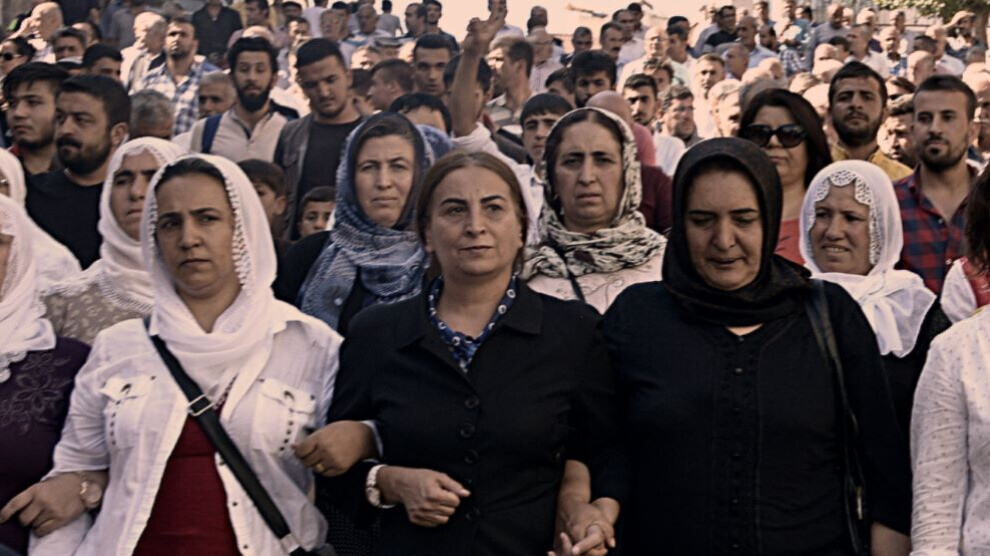Aysel Tuğluk: Memory and Resistance
The imprisoned politician Aysel Tuğluk is one of the Kurdish women who resist state oppression and the norms and gender roles imposed on them by the patriarchal system in all areas of life.
The imprisoned politician Aysel Tuğluk is one of the Kurdish women who resist state oppression and the norms and gender roles imposed on them by the patriarchal system in all areas of life.

"The Kurdish women's movement is a movement that can only be understood and interpreted through its resistance. When it comes to women's resistance, the spaces where their resistance takes place, especially the prisons, are of great importance. Because the Kurdish women who have been held in prisons, in their husbands' houses, in their fathers' houses, have fought to get out of these spaces. By liberating these spaces, they have gone from the houses to the streets, to the squares and to the mountains to fight," writes Sara Aktaş in a column about Kurdish politician Aysel Tuğluk in Yeni Özgür Politika:
Kurdish women are doing a great job of resisting the norms and gender roles imposed on them by the patriarchal system and the oppression of the government. And they do this not only in the field of political struggle, but in all areas of life.
Aysel Tuğluk is one such woman. After her lawyers announced that she was struggling with memory loss, the Women's Council of the Peoples' Democratic Party (HDP) declared that it would extend the "Justice for Women" campaign to all seriously ill prisoners and women held as political hostages in Turkish prisons. In particular, "Justice for Aysel Tuğluk" will be demanded, as Aysel's story largely sums up the kind of persecution faced by all Kurds and especially Kurdish women.
So who is Aysel? She grew up in Elazığ but is originally from Dersim, and like all people from the region, she carries the traces of the Dersim massacre in the depths of her memories and has experienced the first major trauma of her life as a result.
In her youth, she experienced fascism and persecution by the Turkish state. She waited for her imprisoned brother outside the doors of the torture centre where he was held. As if these traumatic experiences were not enough, her brother was murdered in prison, causing her another severe trauma. As a person who has experienced so many incidents, she has no choice but to become an oppositionist, a leftist and a rebel, she said.
Due to the constant pressure on her family, she moved to Istanbul. She graduated from law school and became a lawyer, but she continued to witness violence. She saw it as her duty to take up the cases of revolutionary people who were imprisoned and subjected to severe forms of torture in the 1990s. She followed the cases of extreme human rights violations and torture. She participated in the activities of the Foundation for Social and Legal Studies (TOHAV) and the Human Rights Association (IHD). During the same period, she founded the Patriotic Women's Association and participated in the women's freedom struggle. When Abdullah Öcalan was arrested in the course of an international conspiracy, she became part of his legal team and co-founded the Asrin law office. (...)
In the 2000s, Aysel Tuğluk emerged as a major political figure, actively participating in politics and becoming co-chair of the Democratic Society Party (DTP) and later the Democratic Society Congress (DTK). She was a member of parliament for two terms and was arrested in 2016 when she was deputy co-chair of the HDP. The persecution she faced has not stopped even with her arrest.
As is widely known, the Turkish government, which seeks to enforce its grip on power through misogynist, polarising, militaristic and deadly policies, has tried to persuade Aysel to give in through some of the cruelest torture. The funeral ceremony of her mother, Hatun Tuğluk, could not be held in peace. The body had to be exhumed due to physical attacks on her grave. This became another severe trauma in Aysel's life and for her soul.
So the fact that Aysel Tuğluk suffers from memory loss cannot be assessed independently of the torture policy, just like all the other prisoners in Turkish jails who continue to resist despite their myriad health problems.
Although Aysel Tuğluk's severe health problems have caused public outrage, the Turkish authorities continue to play the three monkeys - because Aysel is Kurdish and Alevi, and because in the book by the other political hostage Gültan Kışanak, entitled "The Colour Purple in Kurdish Politics", Aysel said the following words when explaining her struggle: "Just as Samuel Beckett says: 'Try again, fail again, fail better.' We should keep fighting every time we failed, with the joy of playing a game. We can fail more times, so what? Then we should try and fail again and again to become better. It's about embracing life."
Yes, Aysel is a woman who has never given up fighting, despite all the failures she has suffered. She is a woman who has dedicated her life to the struggle for freedom. Demanding justice for Aysel Tuğluk therefore means defending women's struggle for freedom. It means defending democratic politics and opposing the government's politics of death.
So let us raise our voices once again for all prisoners, on behalf of Aysel. I end this article with another quote from her: "We will continue to exist for our work, for our identity and for our freedom. As women, we have no choice but to fight against the sexist mentality. We have to be self-confident. There is nothing that women's emotional and analytical intelligence cannot achieve."